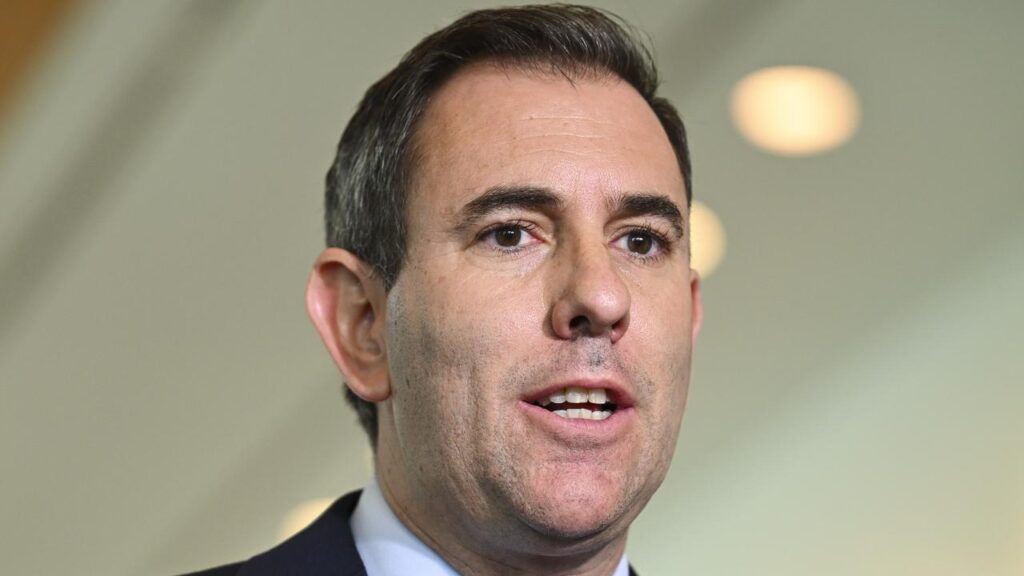Expert shares top tips ahead of tax time
Written by admin on June 15, 2024
It’s tax time again and Aussies are being urged to take their time and not fall into a number of common traps.
CPA Australia is offering some crucial advice for people as they get set to prepare their tax return, so they can get the most out of their returns and not fall foul of bad advice and scams.
CPA Australia spokesperson Gavan Ord has shared his five do’s and five don’ts of tax time.
DO
1. Be as thorough as possible
Mr Ord says that getting your tax return right is your responsibility and that includes declaring all incomes and claiming appropriate expenses.
“Failure to properly declare your income increases your chances of being audited by the ATO,” Mr Ord says.
“Failing to claim everything you’re entitled to means less cash back than you could be entitled to.
“You should be in the habit of keeping all relevant receipts and records, and keeping logbooks of your work activity in order to make the most comprehensive claims.
“A common deduction people overlook is the cost of seeking professional tax advice. Some people might not think they can afford to hire a tax agent, but as it’s a legitimate deduction you can claim every year, it’s win-win.”
2. Claim the appropriate work-related expenses
Everyone can claim work-related expenses, where they are entitled.
Mr Ord says it pays to be patient.
“Typical work-related expenses include things like uniforms and protective items, work phone and internet costs, subscriptions and union fees, and travel expenses between worksites or client locations – but not the commute to and from home,” Mr Ord says.
3. Get your motor vehicle expenses right
Mr Ord says there are two ways to claim motor vehicle expenses for work purpose
“But whichever is used, you must ensure the claim is accurate and properly evidenced, whether it’s for fuel, servicing or lease payments,” he says.
“If you use a motor vehicle for both business and private use, you must be able to correctly identify and justify the percentage you are claiming as business use.
“The percentage that is for private use isn’t claimable.”
He adds that to claim accurately, you should keep a logbook or diary.
4. Purchase work-related items before June 30
Any work-related items purchased before June 30 can be claimed as a deduction.
“So if you need any equipment for your home office, like a new desk or computer chair, do it before the end of the financial year,” Mr Ord says.
“Individuals can claim an immediate deduction for items they need for work that cost $300 or less, as long as your employer does not reimburse you for that expense.
“The ATO has a free app (myDeductions) to help taxpayers keep on top of their records.”
5. Seek professional tax help
Mr Ord says the more complex your tax affairs, the more you should consider getting help from a professional.
“Understanding tax rules and unpacking them in a practical and easy-to-understand manner – including what is and isn’t tax deductible – can be difficult,” Mr Ord.
“Accountants offer a professional service to help ensure your tax returns are right and you claim the maximum tax deductions you’re entitled to.”
DON’T
1. Rush
Mr Ord says it’s best to take your time because getting in early doesn’t mean you’ll necessarily receive your refund first.
“It’s possible that cost-of-living pressures mean people are more eager than usual to lodge their tax return and access a refund,” he said.
“We know it’s tempting to lodge your return straight away, but you should wait for the ATO to finish pre-filling your tax information. This can take several weeks or more.
“Many who lodge in early July end up having to amend their returns later so it’s best to wait. It’ll save you in the long run.”
2. Exaggerate claims
While everyone wants as big of a return as possible, Mr Ord warns against exaggerating your claim.
“The ATO uses data-driven profiles based on things like employment type and financial investments to identify where some people may be pushing the boundaries of what they are entitled to claim,” he says.
“If your claims are disproportionate to what the ATO would expect from someone in a similar job to you, or with similar financial investments, you may be asked to provide additional evidence to validate your claims.”
3. Don’t make incorrect claims on rental properties
Mr Ord says that rental properties are a focus of the ATO this year.
“Particularly when it comes to owners who make claims for renovations as repairs,” he said.
“Repairs to the property because of wear and tear or damage from tenants are tax deductible. However, if the work results in an improvement rather than just repairing damage, or results in the replacement of an asset, the expenses will be capital in nature and you can only claim a depreciation expense, not for the entire cost in the year it was spent.
“Claiming mortgage interest in full when there were drawdowns for private purposes, as well as declaring net income after expenses from annual rental summary of real estate as gross income, will also be under the microscope.”
4. Don’t follow bad advice
Mr Ord says while you might be able to find tax “advice” on the internet and social media, take it with a “giant bucket of salt”..
“You only need to spend a few minutes on YouTube or TikTok to find some dodgy tax advice,” Mr Ord said.
“Just because someone has thousands of followers doesn’t mean they know what they are talking about.
“Content creators come up with all sorts of weird and wonderful ways to attract attention and likes, and will make bold claims about how much money you could make by following their advice on your tax returns.”
5. Don’t fall for scams
Chances are you’ve been contacted by scammers pretending to be the ATO.
Mr Ord says to be wary and think first before clicking on anything.
“Australians should always be wary of online scams, but we are particularly vulnerable at tax time,” he says.
“Cyber criminals use a mix of tried-and-tested and new methods to attempt to defraud taxpayers.
“Scammers take advantage of any situation – and at tax time that means targeting unsuspecting individuals through unsolicited messages claiming to be the ATO or another reputable organisation – known as ‘phishing’ scams.
“These messages trick individuals into acting quickly and letting their guard down on the promise of financial gain or by convincing them they have done something wrong and need to rectify the situation quickly to avoid penalties.”
Read related topics:Tax Time







